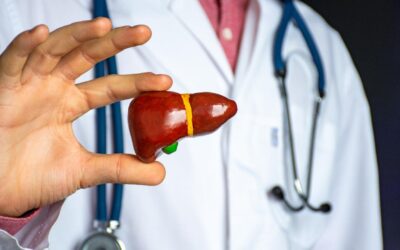Hepatitis Day: Here`s what you need to know about the silent liver infection

Hepatitis is a condition where the liver becomes inflamed due to infection, toxins, or autoimmune disorders. The most common cause is a viral infection, especially Hepatitis A, B, C, D, or E. The liver plays a pivotal role in digestion, detoxification, and energy storage, so any damage to it can take a toll on the entire body.
Dr Tanish Mandal, consultant pathologist and zonal technical chief, Apollo Diagnostics in Delhi, explains, “Hepatitis tends to spread via contaminated food or water (Hepatitis A and E), contact with infected blood, unprotected sex, or from an infected mother to child (Hepatitis B and C). It may also be seen because of higher alcohol intake, certain medications, or underlying autoimmune diseases.”
Every year, World Hepatitis Day is observed on July 28 to raise awareness about a group of diseases that affect the liver and can cause severe damage. Hepatitis, if left untreated, can damage the liver and that is why it is necessary to manage it without any further delay. Knowing the causes, symptoms, and diagnosis is essential for timely intervention.
When to suspect Hepatitis?
Many cases of Hepatitis will show no symptoms in the beginning, which is why it’s called a “silent” disease. However, Dr Mandal highlights the signs and symptoms like yellowing of skin and eyes (jaundice); fatigue or weakness; dark-coloured urine; pale or clay-coloured stools; abdominal pain, especially in the upper right side; Loss of appetite; nausea or vomiting, and fever or joint pain (in some cases)
In case a person witnesses any symptoms, then it will be the need of the hour to go for timely testing. It is necessary to get the tests done as recommended by the doctor. So, doctors advise doing the blood tests to check liver function and to identify the type of hepatitis virus present.
Dr Mandal sheds light on the tests that can be done:
1. Liver Function Test (LFT): Will help to check how well the liver is working. Recommended every 6 months, along with a routine health check, to understand the liver health status.
2. Hepatitis Panel: This can be done to detect antibodies or antigens for Hepatitis A, B, and C. For example, HBsAg should be used for checking for active Hepatitis B infection, and Anti-HCV will be carried out to detect Hepatitis C infection.
3. For assessing liver damage or other pathologies like autoimmune conditions or tumours, liver biopsy may be needed.
“Most hepatitis-related tests are blood tests performed in the laboratory. A small sample of blood is drawn from a vein and sent for analysis. Reports can be delivered within a day, usually. The treatment should be immediately initiated after the diagnosis is confirmed. Hepatitis can become dangerous if ignored. Early diagnosis and treatment can prevent liver damage and improve the quality of life. Don’t ignore the warning signs, get tested, stay informed, and protect your liver,” said Dr Mandal.
“Hepatitis often shows no early signs; however, beware of fatigue, jaundice, nausea, and abdominal pain. If left untreated, hepatitis can lead to concerning liver damage, including cirrhosis or liver cancer. Treatment depends on the type of hepatitis detected in the patient. Some need medications, while others require supportive care such as rest, nutrition, hydration, and no alcohol or smoking. Remember that timely vaccination, safe hygiene, and regular screening can prevent the hepatitis infection, “ said Dr Ameet Mandot, director – Department of Hepatology and Liver Transplant Medicine, Gleneagles Hospitals at Parel in Mumbai.
Search
Recent
- Pkl’s Sec 17 Market committee forms ‘task force’ to keep premises clean
- ‘Every village must produce a champion’: CM Saini at Khel Mahakumbh
- Chandigarh’s solar boom: Renewable energy capacity grows 18-fold in a decade
- Most Covid-era O2 plants battle for life in Punjab hospitals
- UT cyber police recover just ₹15cr of ₹95cr cheated in online frauds over 2 yrs





